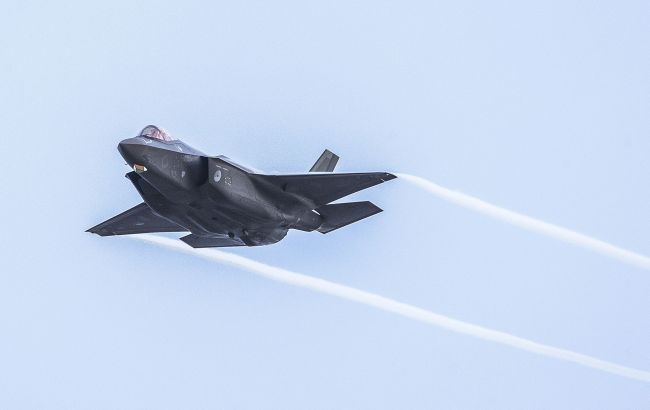America's costliest jet F-35 threatens Pentagon's $2 trillion audit cleanup
 F-35 Lightning II — world's most expensive fighter jet (Photo: Getty Images)
F-35 Lightning II — world's most expensive fighter jet (Photo: Getty Images)
The F-35 fighter jet program remains a major roadblock in the Pentagon's attempt to pass its first full audit, Bloomberg reports.
Despite Defense Secretary Pete Hegseth's pledge to deliver the Pentagon's first-ever clean audit by 2028, the F-35 — the most expensive weapon system in US history — has emerged as a major obstacle.
According to Pentagon officials, the fighter jet program has been cited for the sixth consecutive year as a "material weakness" in the department's annual audit, hindering efforts to account for $3.8 trillion in assets and $4 trillion in liabilities.
"We are going to focus heavily to ensure that — at a bare minimum, by the end of four years — the Pentagon passes a clean audit; the American taxpayers deserve that," Hegseth said in February.
The F-35 program is the only major weapons system among the Pentagon's 28 listed material weaknesses.
Inventory issues span thousands of parts and pieces of equipment — from tires and landing gear to diamond-tipped drills and specialized testing devices.
F-35's $2 trillion price tag and growing criticism from Trump and Musk
The total cost of the F-35 program has surpassed $2 trillion, including $1.5 trillion for maintenance and support over the aircraft's lifetime.
Out of the planned 2,456 jets, 967 have been contracted, with 747 delivered to date.
However, according to Inspector General spokesperson Mollie Halpern, the Pentagon is still unable "to provide or obtain accurate and reliable data, to account for or value government property, or to report these assets properly in its financial statements."
The program has faced growing criticism.
In December, Elon Musk remarked that "some idiots are still building manned fighter jets like the F-35" in an age dominated by drones, while right-wing influencer Laura Loomer called the F-35 effort "a silent scandal draining US resources and undermining military readiness."
The Pentagon says it is working with Lockheed Martin to implement an automated system that would allow real-time inventory tracking, but so far progress remains slow.
The F-35 must remain a combat asset, not a financial burden — and that will require fixing the inventory problems. This is even more critical as the White House moves to significantly boost military spending, with Donald Trump's administration approving a provisional $1 trillion defense budget.

